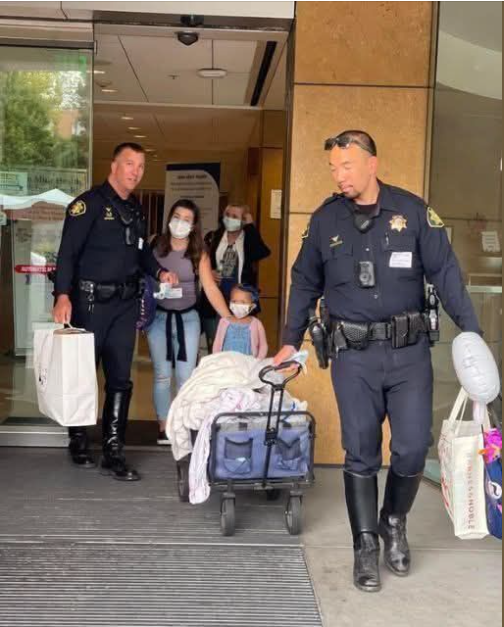
When they told us we could finally leave the hospital, I thought I’d feel relief.
Instead, all I felt was numb.
My daughter beamed under her tiny mask, clutching her stuffed bunny like a lifeline, waving at every nurse with the joy only kids seem to muster. But I couldn’t shake the knot in my stomach.
Because we had nowhere to go.
The rent had lapsed months ago—lost in the haze of long nights beside her hospital bed, watching monitors blink and waiting on test results. Her father had vanished long before the diagnosis. My job had stopped calling two weeks ago after saying they “understood.” I didn’t need a formal notice to know I was no longer employed.
Still, I smiled for her. I brushed back her hair, let her pick a balloon from the gift shop—pretending we could afford a $6 piece of helium hope.
Then I saw them—two uniformed police officers in the lobby.
My chest tightened. For a moment, I thought it was about the bills. Or some paperwork I forgot to file.
But one of the nurses leaned in and whispered, “It’s okay. They’re here to help.”
Help.
The officers didn’t say much. Just offered to carry our bags and mentioned something about a “temporary placement.” I didn’t ask what that meant. I didn’t have the energy.
So we walked out like any other family leaving the hospital—our bags rolling behind us, nurses waving goodbye.
But just as we stepped into the sunlight, one of the officers leaned in and slipped a plain white envelope into my hand.
He said, softly:
“Don’t open it until you’re in the van.”